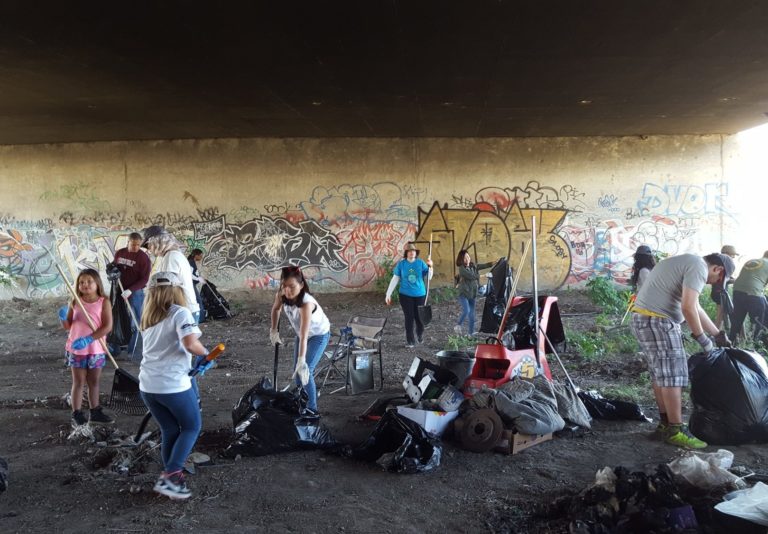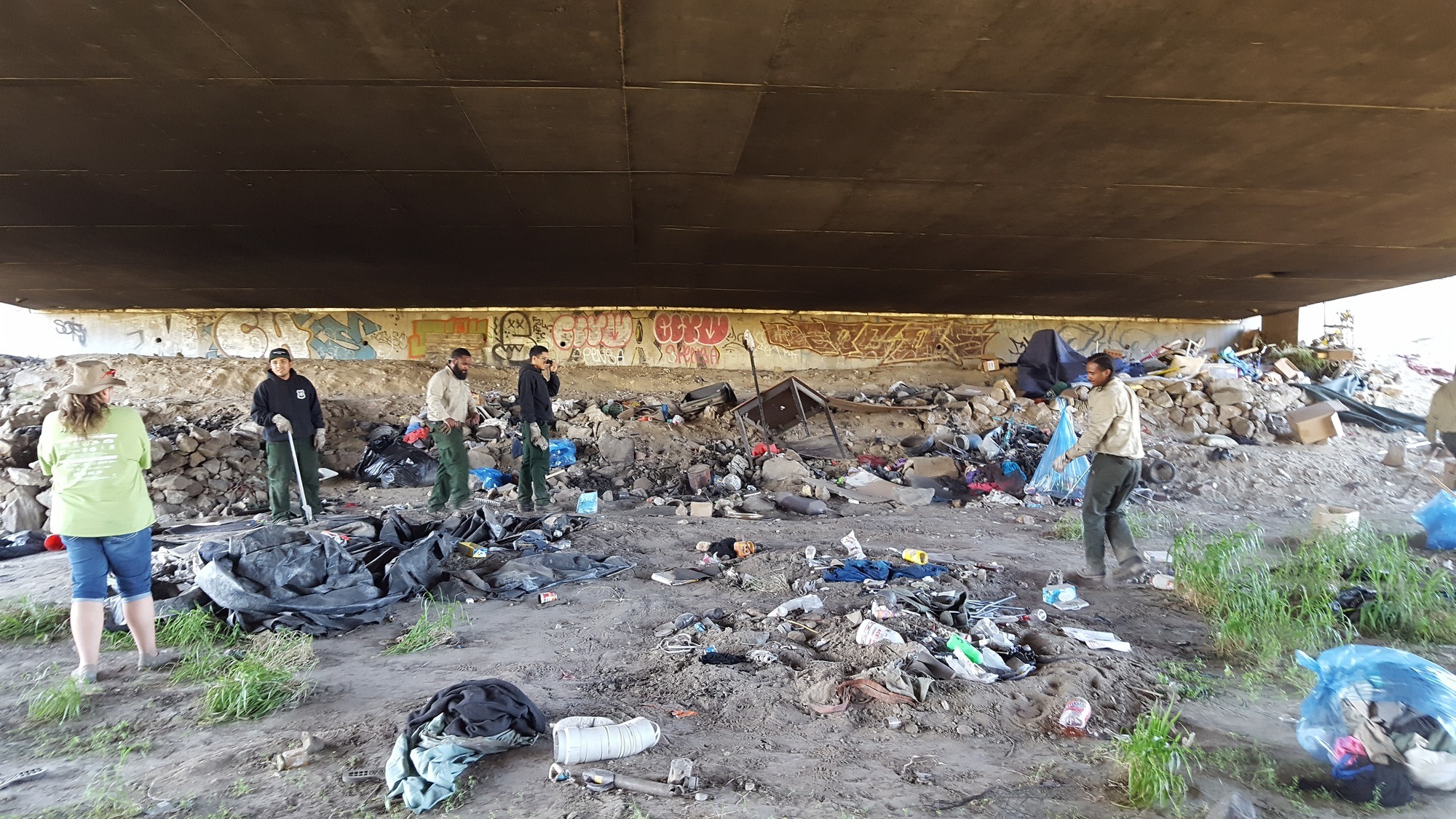
It is easy to feel overwhelmed by the lack of time to effectively contribute to the wide range of problems we see in the world. The recent 50th anniversary of Martin Luther King Jr.’s death gave me pause to reflect on the breadth and depth of his work, and to what Angela Davis refers to as the “intersectionality of struggle.” The recognition of, and action on, our interconnectedness gives good reason for hope.
Waterkeepers around the world are tackling intersectional struggles every day, including three California Waterkeepers who are bridging the issues of homelessness, public health, and water quality.
When working to clean up rivers and creeks, Waterkeepers might accompany law enforcement into homeless camps to assess clean-up needs while the people experiencing homelessness are being evicted, only to set up camp along a waterway somewhere else in the watershed. This short-sighted approach generated frustration with Waterkeepers, who are committed to finding deeper, more enduring solutions.
The Russian River watershed is a beautiful area north of San Francisco where vineyards dot the landscape and homeless camps can be found in riparian areas. For years, Russian Riverkeeper has hosted and collaborated with partners on clean-ups that have removed hundreds of thousands of pounds of trash from creeks, rivers, and ocean beaches.
While Russian Riverkeeper recognized that trash and waste from homeless camps are a huge problem for water quality, they also recognized that forcing the camps to relocate did not address the amount of litter—it simply changed where the litter was found.
After witnessing the futility of evictions, Russian Riverkeeper’s volunteer director for their Clean River Alliance project, Chris Brokate, started the Clean Camp and Education program. The program teaches people living along the river to use leave-no-trace camping practices and provides bags for a weekly trash pickup service at the camps. This approach is producing a cleaner river, reducing the trauma caused by evictions, and building community and responsibility with individuals experiencing homelessness. The Clean Camp program is so successful that Sonoma County is funding it with $150,000 in hotel tax revenue generated by tourism, and a new pilot will hire homeless community members for services to clean up downtown areas.
Inspired by Russian Riverkeeper’s progressive work in Sonoma County and discouraged by the unsuccessful efforts of law enforcement in moving homeless camps, Inland Empire Waterkeeper, located in Riverside, launched its own Clean Camp Coalition in southern California that provides weekly trash services to people experiencing homelessness.
In addition to garbage pick-up services, Inland Empire Waterkeeper partners with the faith community and serves as a point of contact for service providers that can help with shelter and other assistance programs. They are also leading a tri-county effort to design a cohesive regional solution.
Inland Empire Waterkeeper Associate Director Megan Brousseau is contagious with her enthusiasm for the progress she and her community are making together, “I had become jaded on this issue, but then I realized it is not ‘either or.’ We can figure out how to serve everyone and protect everyone’s right to our river.”
Another inspiring example comes from the salmon streams of Humboldt County near the Oregon border where Humboldt Baykeeper recently used the law to help improve the lives of people experiencing homelessness. Many Waterkeeper Organizations and Affiliates enforce the Clean Water Act in court and when doing so, judges can award money to a third party to undertake mitigation efforts that relate to the pollution at the center of the legal case. Humboldt Baykeeper had a series of Clean Water Act enforcement successes in 2017 that resulted in $130,000 being awarded to independent organizations, foundations, and municipalities to perform wetland restoration, water quality monitoring, and build public bathrooms to provide homeless community members with sanitary options.
These Waterkeepers are willing to jump in and grapple with complex challenges to find collaborative solutions and build bridges within their communities. Facing tough challenges reminds me of Dr. King’s words: “Never, never be afraid to do what’s right, especially if the well-being of a person or animal is at stake. Society’s punishments are small compared to the wounds we inflict on our soul when we look the other way.”
If you need a healthy dose of inspiration and action, become more familiar with what Waterkeepers are doing near you.
